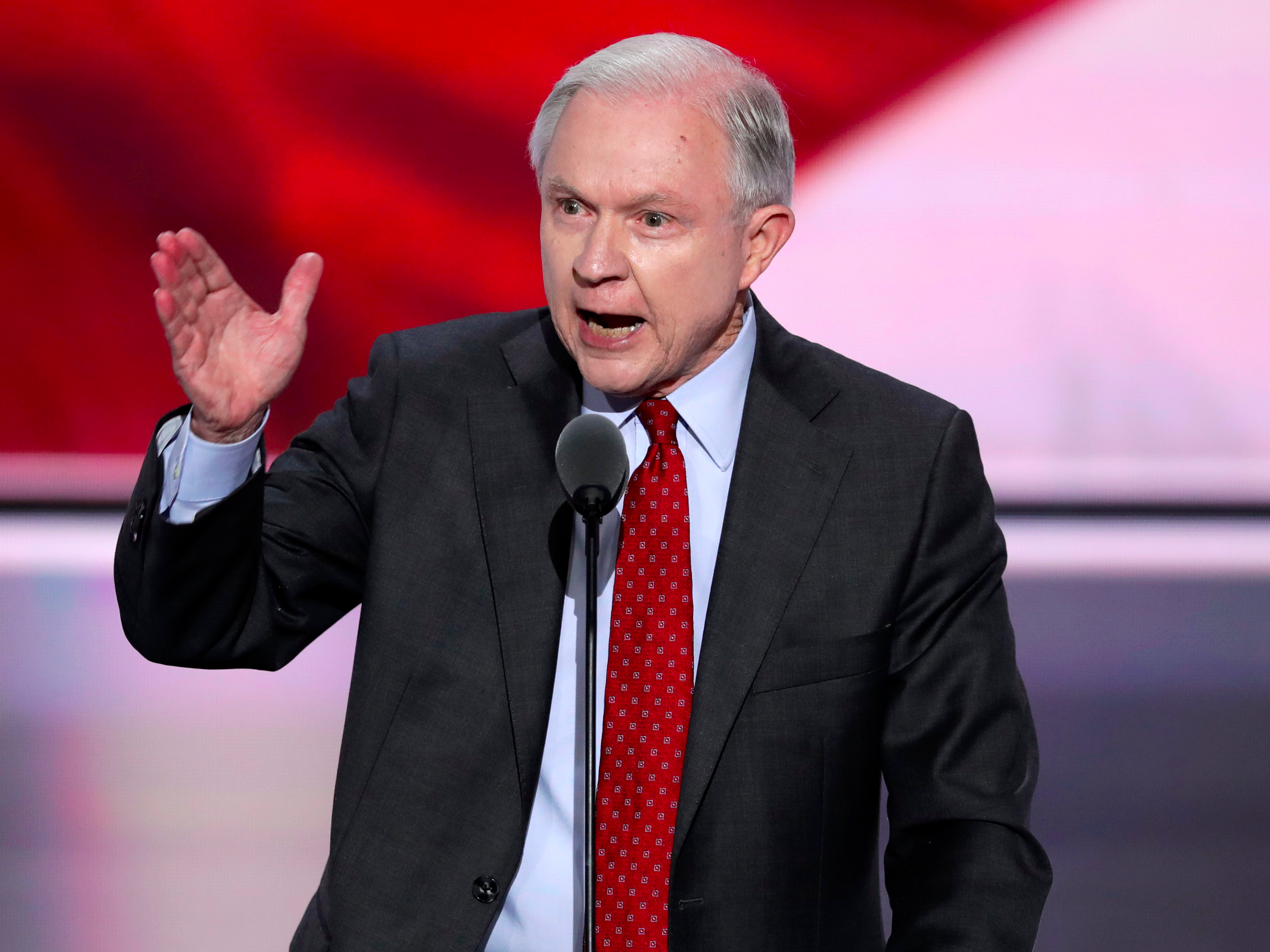President-elect Donald Trump has picked Sen. Jeff Sessions as his attorney general, his transition team said Friday.
Sessions, the junior senator from Alabama and a staunch opponent to immigration reform, was one of Trump’s earliest congressional supporters. He was also thought to be under consideration for secretary of defense.
Before joining the Senate, Sessions was a US attorney and the attorney general of Alabama.
“It is an honor to nominate US Senator Jeff Sessions to serve as Attorney General of the United States,” Trump said in a statement. “Jeff has been a highly respected member of the US Senate for 20 years. He is a world-class legal mind and considered a truly great Attorney General and U.S. Attorney in the state of Alabama. Jeff is greatly admired by legal scholars and virtually everyone who knows him.”
Trump also announced retired Lt. Gen. Michael Flynn as his national security adviser and Rep. Mike Pompeo of Kansas as CIA director.
Sessions and Pompeo will face the Senate confirmation process. Iowa Sen. Chuck Grassley, the chair of the Senate Judiciary Committee, said he believed he would be reported "favorably" out of the committee. Other prominent Republicans cheered the move.
"Sen. Jeff Sessions' nomination as attorney general is great news for all of us who revere the Constitution and the rule of law," said Sen. Ted Cruz of Texas, who was reportedly also considered for the position.
Sessions' consideration for a Cabinet position has renewed scrutiny over allegations of racism that plagued him early in his career. President Ronald Reagan nominated Sessions, then a US attorney, to be a federal district court judge in 1986, but his nomination was withdrawn after a prosecutor testified that Sessions called the NAACP and the ACLU "un-American."
An African-American prosecutor testified that Sessions had joked that he thought the Ku Klux Klan "was OK until I found out they smoked pot." That prosecutor also said Sessions referred to him as "boy," a charge Sessions denied.
J. Gerald Hebert, a Justice Department lawyer who testified that Sessions told him the NAACP and the ACLU were "un-American" and "Communist-inspired," told CNN this week that he stood by his 1986 testimony.
"Things that I had heard firsthand from him were things that demonstrated gross racial insensitivity to black citizens of Alabama and the United States," Hebert said.

